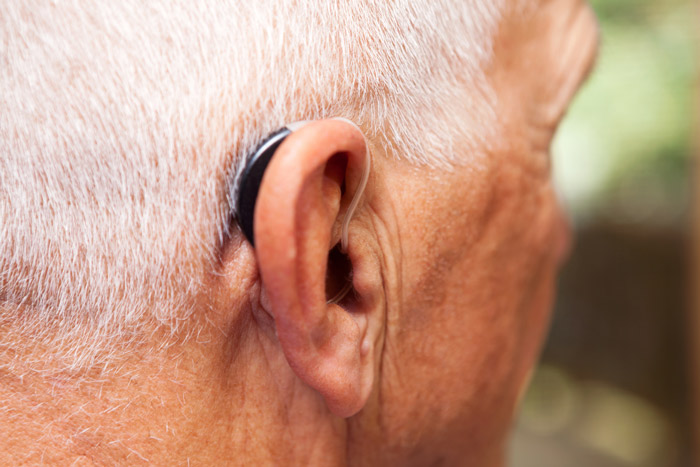What Does Tinnitus Sound Like
What Does Tinnitus Sound Like
Part of what makes tinnitus so challenging to manage is the fact that everyone experiences tinnitus differently. From the sounds, you can hear to the volume of your tinnitus, the way you perceive your tinnitus can vary from what someone else hears.
These differences can make it tough to help others understand what you are going through. To help you overcome these hurdles, our hearing specialist at Echo Hearing Center wants to provide you with a resource that you can use to help others understand your tinnitus and learn how to best support you.

Sample Sounds of Tinnitus
While tinnitus can sound different for everyone, you can help your family, friends, and audiologist have a greater understanding of what you hear by using the sample sounds of tinnitus, provided by the American Tinnitus Association.
Warning!! Before you play any of these sound clips, turn your volume down. These sounds can be very piercing and loud, and we don’t want you to hurt your ears. Also, we don’t recommend people wearing earbuds listen to these clips, as the sound can more directly impact your hearing with that style of headphones.
4000 Hz Tone
7500 Hz Tone
Static
Tea Kettle
Screeching
Cicada or Buzzing
Roaring
Electric

Range of Tinnitus Severity
As you can see from the tinnitus sample sounds, there is a range of variation when it comes to how people perceive tinnitus. There is also a range of tinnitus severity, from mild tinnitus which can often go unnoticed to severe tinnitus which interferes with daily activities. To determine your tinnitus severity level, there are various tests which may be utilized.
- Minimum Masking Level – When assessing the minimum masking level, the lowest volume you need to cover your tinnitus will be the goal of the assessment. By determining what masking level you need, other sound treatment can be devised, and it can help our audiologist determine how much your tinnitus impacts you.
- Tinnitus Sound Matching – Like with the sample sounds above, our hearing specialist can use sound-matching technology to help identify your particular tinnitus. Not only can the type of sound be adjusted, but the sample tinnitus sound can be layered with your particular pitch and volume. That way, a clear baseline of your tinnitus can be assessed.
- Loudness Discomfort Level – How loud your tinnitus is can affect what treatment options our audiologist will recommend. Some types of sound generators and maskers may not be very effective for severe tinnitus, and by knowing what impact tinnitus has on your ability to hear can help determine what hearing aids with tinnitus support built-in are best for you.
Side-Effects of Untreated Tinnitus
We have lightly touched on how untreated tinnitus can affect you on our main page on tinnitus. But it can be difficult to understand how something like a phantom sound can have such a severe impact on your life. To help you have a better understanding of why you need treatment for your tinnitus, here are the explained side-effects of untreated tinnitus:
- Insomnia – For many people with moderate-to-severe tinnitus, insomnia is a major side effect of untreated tinnitus. This effect is often due to the fact that their tinnitus is more noticeable at night when everything has quieted down. Without the masking noises of daytime, tinnitus can keep you awake long into the night and can make staying asleep difficult.
- Chronic Fatigue – A natural side effect of losing sleep over tinnitus is chronic fatigue. Tinnitus often makes even napping a difficult, as the phantom sound can intrude just as you are trying to drift asleep for a quick rest.
- Anxiety – Those who often deal with stress and depression due to tinnitus can also suffer from high anxiety levels. This anxiety is another side effect of how the brain processes tinnitus.
- Memory Trouble – MRI scans of tinnitus sufferers have shown that there is a brain grey matter decrease in those with tinnitus. This loss of brain tissue, along with other factors, can leave those with tinnitus struggling with memory issues.
- Stress – A common side-effect of tinnitus is stress. It can be a vicious cycle, as tinnitus is exacerbated by stress, but living with the irritating sounds of tinnitus can make you feel more stressed, which makes your tinnitus worse. Learning relaxation techniques is a key way to overcome this particular side-effect.
- Depression – Tinnitus is partially processed through the amygdala, a small area of the brain which helps process emotion and memory, among other things. As the amygdala is triggered by tinnitus activity in the brain, depression is one of the emotions that are often the result.
- Irritability – Unsurprising to most people with tinnitus, irritability is a natural side effect of living with untreated tinnitus. Not only because the annoying sound is inescapable without treatment, but the irritability can also be due to the fact that the amygdala helps process tinnitus and attaches negative emotions to tinnitus.
Where to Find Customized Tinnitus Treatment
Having tinnitus treatment customized to your needs is critical to help you break free of your tinnitus. Our audiologist can work with you to find exactly what will help you best when it comes to treating your tinnitus. Some of the tinnitus treatment steps you can take with us are:
- Hearing evaluations
- Progressive tinnitus manage a plan
- Tinnitus retraining therapy
- Hearing aids with tinnitus support
If you would like to work with an experienced hearing healthcare professional who will take the time to customize your tinnitus treatment to your needs, contact us for an appointment today.
